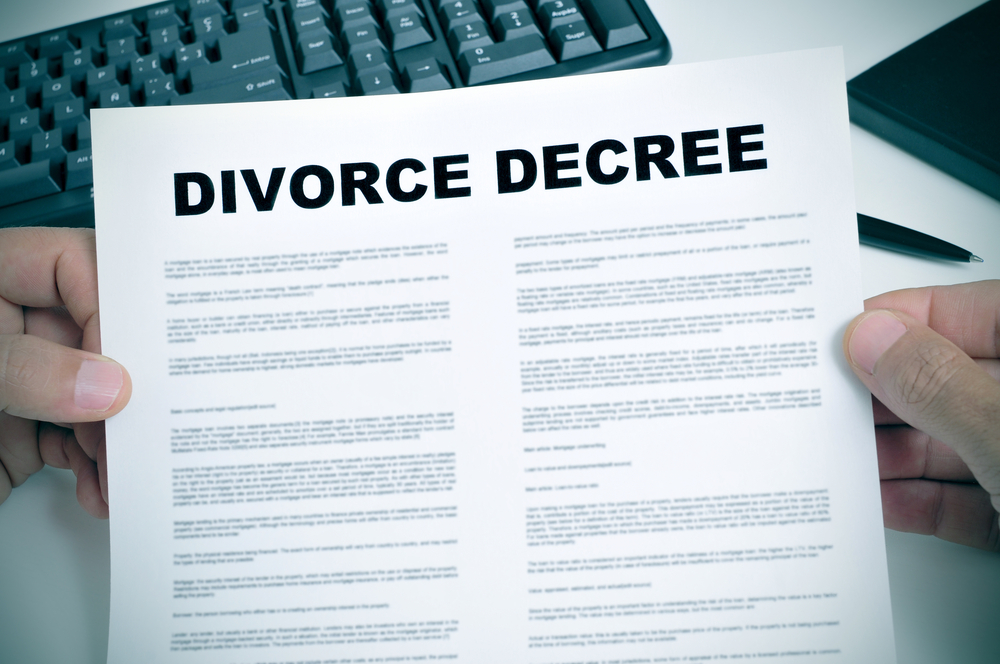
In New York, spouses seeking to separate without immediately pursuing divorce have the option of entering into a legal separation, a formal and legally binding arrangement that outlines the rights and responsibilities of each spouse while they remain legally married.
While legal separation is less commonly pursued than divorce, it remains a valuable legal tool for couples with financial, religious, or personal reasons for remaining married while living apart.
Unlike casual separations where spouses informally agree to live apart, legal separation in New York carries enforceable legal consequences and can affect property rights, support obligations, and even future divorce proceedings. Therefore, you should seek representation from a skilled lawyer for a divorce and legal separation in New York to ensure your rights are protected.
What Is Legal Separation in New York?
Legal separation in New York is governed primarily by New York Domestic Relations Law (DRL) § 200. It provides spouses with a structured legal status that enables them to live separately while remaining legally married. This is typically done through a Separation Agreement (a private contract between spouses) or, less commonly, through a Judicial Separation Action, which requires a court filing and judicial determination.
There are two primary ways to legally separate in New York:
Separation by Agreement
This is the most common route. Spouses voluntarily enter into a written Separation Agreement that addresses all the key aspects of their separation. The agreement is signed, notarized, and enforceable as a legal contract. It can later be submitted to a court to be incorporated into a divorce decree, should the parties decide to proceed with divorce.
Separation by Judicial Decree
This less common approach involves filing a lawsuit for legal separation in the Supreme Court of New York, alleging one of the fault-based grounds specified under DRL § 200, such as:
- Cruel treatment
- Abandonment
- Imprisonment for three or more consecutive years
- Failure to provide support
- Adultery
Because New York is a no-fault divorce state as of 2010, judicial separation actions have become rare. However, the option is available for someone who wants a legal separation and is unable to reach an Agreement with their spouse.
Legal Separation vs. Divorce in New York: Key Differences
Divorce and legal separation differ in several ways. Knowing these distinctions is vital because the consequences of a legal separation and divorce agreement are materially different.
| Feature | Legal Separation | Divorce |
| Marital Status | Still legally married | Legally ends the marriage |
| Right to Remarry | No | Yes |
| Tax Filing | May still file jointly (if criteria met) | Cannot file jointly |
| Health Insurance Access | Generally retained, depending on the plan | Usually terminated |
| Property Rights Upon Death | Spousal inheritance rights may still apply | Generally extinguished |
| Religious Considerations | May align with religious prohibitions on divorce | Divorce may be religiously prohibited |
In short, a legal separation has many of the same protections as a divorce based on New York laws, particularly regarding finances, property, and children, without dissolving the marriage itself.
Separation Agreement: Components and Enforceability
A Separation Agreement is a binding contract and must meet legal requirements to be enforceable in court. It should be:
- A written agreement
- Signed by both parties
- Acknowledged (notarized) with the same formalities as a deed
Typical Provisions Include:
- Spousal Support (Maintenance)
- Amount and duration of alimony payments
- Waiver of support, if agreed upon
- Child Custody and Visitation
- Legal and physical custody arrangements
- Parenting time schedules
- Dispute resolution mechanisms
- Child Support Payments
- In accordance with the Child Support Standards Act (CSSA)
- Provisions for extraordinary expenses (e.g., medical, educational)
- Division of Assets and Debts
- Equitable distribution of marital property
- Treatment of separate property
- Allocation of debts and liabilities
- Health Insurance and Benefits
- Continuation of coverage under existing plans
- Responsibility for premiums
- Estate Rights
- Waiver of rights to inherit from each other’s estates
- Waiver of rights to inherit from each other’s estates
- Tax Considerations
- Filing status
- Allocation of dependency exemptions and credits
It’s strongly advised that each spouse have independent legal counsel to avoid claims of coercion or unfairness, and to ensure the agreement is legally sound and customized to their circumstances.

Legal and Financial Implications of Legal Separation
Asset and Debt Accumulation
Property and debts acquired after the execution of a valid Separation Agreement or judicial separation decree are typically considered separate (not marital) property. This can freeze the accrual of marital assets, which is often a compelling reason to opt for legal separation before divorce.
Inheritance and Estate Planning
Unless specifically waived, spouses remain legal heirs of each other’s estates. Those seeking to fully sever inheritance rights must revise their wills, trusts, and beneficiary designations, and address spousal rights under New York’s elective share laws.
Taxation
Legally separated spouses may continue to file jointly if they live apart for the last six months of the tax year and meet other IRS requirements. However, many choose to file separately. The terms of the agreement should explicitly outline the intended tax-filing strategy and responsibilities.
Impact on Public and Employer Benefits
Some employer-sponsored health insurance plans permit legally separated spouses to remain on a family plan, while others do not. An informal trial separation can also affect Social Security spousal benefits, pensions, and military benefits.
Reasons Why Some Couples Choose Legal Separation Over Divorce in New York
Couples may choose legal separation rather than go through the divorce process for several reasons:
- Religious or cultural values discourage or prohibit divorce
- Health insurance retention, especially when one spouse depends on the other’s employer-sponsored plan
- A trial period of separation before making a final decision on divorce
- Estate planning purposes, particularly in cases involving long-term trusts or intergenerational wealth
- Immigration status, where a non-citizen spouse is in the process of adjusting status, and a divorce may create legal obstacles
Conversion to Divorce: The “No-Fault” Route After Separation
Under New York law, a Separation Agreement can serve as grounds for a no-fault divorce after one year. Under DRL § 170(6), a spouse can file for a divorce judgment after living separately for at least 12 months pursuant to a written, legal separation agreement, provided both parties have substantially complied with its terms.
This is referred to as a “conversion divorce” and is usually preferred for its procedural efficiency and reduced adversarial conflict, since many core issues (support, custody, property) have already been addressed during the legal separation process.
Can You Reconcile After Legal Separation?
Since legal separation does not dissolve the marriage, spouses can reconcile and void the agreement at any time. If the separation was judicial, they can jointly petition the court to cancel the decree. If it was contractual, the agreement can be revoked or amended by mutual consent through another signed, acknowledged agreement.
Common Pitfalls and Legal Mistakes to Avoid
- Improper notarization invalidating the agreement
- Vague or unenforceable language leading to litigation
- Failure to update estate planning documents
- Not addressing future divorce explicitly (e.g., incorporation or merger of the agreement)
- Using DIY forms without legal review, resulting in unfair or incomplete terms
Our Proven New York Family Law Attorneys Can Represent You in a Legal Separation
Whether you’re pursuing legal separation as a path toward divorce or as a long-term arrangement, it’s prudent to consult with an experienced attorney to ensure your agreement is fair and legally enforceable. At Petroske Riezenman & Meyers, P.C., our New York family law attorneys provide strong legal support for drafting, negotiating, and enforcing separation agreements to meet your goals. With our skilled team on your side, you will have the advantage of clear legal insight and assertive representation every step of the way. To schedule your free and confidential consultation, call us at (631) 337-1977 or contact us online.
If you are contemplating an annulment, contact us to consult with an experienced matrimonial attorney who is well-versed in the nuances of New York State law to achieve your best outcome.